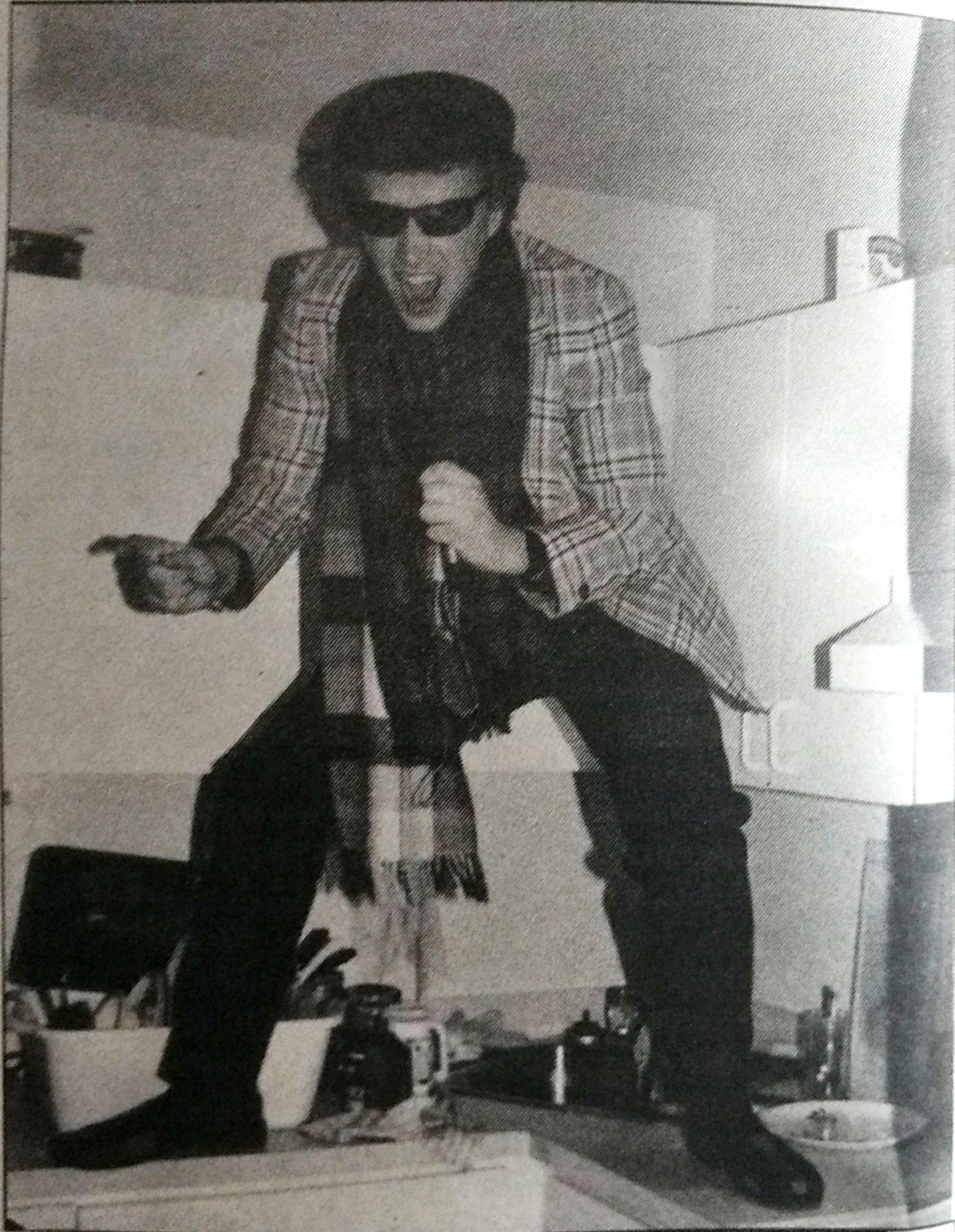By Stacey Stein
By day, Lorne Hind is a courier. By night, he’s belting out ‘60s and ‘70s tunes at clubs in Toronto. Such is life for Hind, guitarist for Unlimited Groove, one of many cover bands working the circuit here.
The band was formed a year and a half ago after Hind and drummer Dixon Zee responded to an ad bassist/singer Derek Thomas placed in NOW magazine. Now they’re playing a venues like Coco Loco and Club Webbs two to three times a month.
Although many people disavow bands that don’t perform original music, there are many good reasons for being in a cover band.
“Doing covers, you get noticed faster because people recognize the songs immediately,” says Hind. Cover bands also don’t have the pressure to carve out a distinct identity for themselves.
“As a cover band, you don’t really have to worry about getting a certain image,” says Hind. He adds that original bands have to worry about things like clothing, singing style and the way the music comes across to the audience.
Vince De Marinis, a booking agent for cover bands in bars and clubs in Toronto, agrees that cover bands have a better chance of getting noticed.
“It’s very rare that people will walk into clubs where they don’t know the band and will stay,” he says. “Cover bands are more likely to attracts people because people are familiar with what they’re playing.”
Once they get a reputation as a cover band, some groups start putting out original material. Having already established a reputation, it’s easier to be a successful original band. A case in point is Road Apples, a Tragically Hip tribute band. After making money and getting known as a tribute band, they renamed themselves Vagabond Groove and have recently released their first indie CD. Other cover bands are following suit.
Steve Sinai and Double Time have been playing covers for several years. After covering everything from Collective Soul to ZZ Top, they wrote 12 original songs. Three of these appear on the Gen X II compilation CD, on indie label Criminal Records. The band hopes to put out an album containing all of their original songs late this spring. In the meantime, they’re playing covers at clubs mostly around Toronto, Mississauga and Scarborough. But now they also include original material at shows.
“When you play covers, people come out to see you doing covers and then you can sneak in your original songs,” says drummer Kevin Dallimore. “No one’s going to come and see you if they’ve never heard of you and you’re doing all your own stuff.”
By mixing in original songs with covers, people get to know the original material. “Then they’ll say, ‘Oh yeah, I remember that song,’” says Dallimore.
On average, his band does one show a week. The members have full-time jobs. Which isn’t to say cover bands don’t make much money. In fact, the money is another attraction for musicians doing covers. According to Dallimore, a cover band can make anywhere from $300 to $1,500 a night, depending on the group. Compare this to original bands starting off, who either get a percentage of the club’s cover charge (which is sometimes nothing), or a percentage of the money made from sales at the bar. If there are only a handful of people at the club, this doesn’t really amount to much in either case.
“Most of them [cover bands] have day jobs,” says booking agent De Marinis. “But some do it full time, because they find they can make a living off it.”
This is the case for Donna Huber, who left the bakery she owned to pursue a full-time career as Shania Twin [not Twain], a tribute act.
“Someone said I looked like Shania Twain, so I wanted to try it out,” says Huber. At the time she hadn’t even heard of the country singer. But after buying the tape and secruing booking agent Roger LaPointe as her manager, Shania Twin is the hottest tribute act in Canada for one-nighters (meaning she doesn’t play the same place twice in a row).
Christened last April, Huber performed over 150 shows in 1996 along. As of the end of February, she’d played over 200.
“I just thought it looked pretty exciting and it was a new career,” says Huber, explaining why she abandoned her bakery to start a new life. “I like trying new things.” Huber has started working on original material, although she hasn’t performed any of it yet.
Aside from the money and looking like Shania Twain, there are other perks to being a tribute act. Last year Huber was performing in Timmins while Twain was in town to sign autographs and get the key to the city (it was ‘Shania Twain Day’ she explains). Huber ended up meeting her ‘namesake’ and the two Shanias even took pictures together.










Leave a Reply